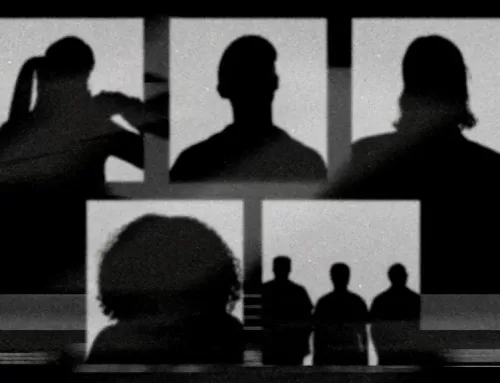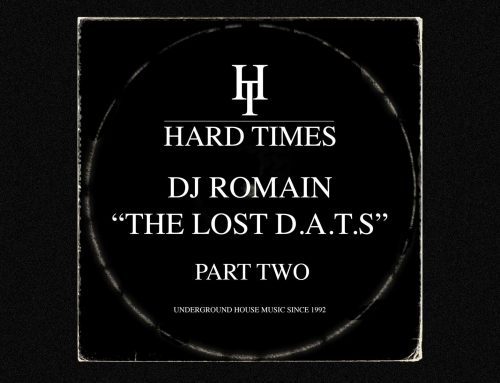
“The great thing about charging for your product,” entrepreneur Jason Calacanis recently said, “is that you find out the truth.”
The truth, they say, will set you free. The truth also doesn’t care about hurting your feelings or bruising your ego when it’s doing so. When you’re emotionally invested in a product you’re selling, reality often fails to meet your wildest expectations. Sometimes reality actually seems to really enjoy kicking your expectations in the fucking gut. The truth is brutal and it never tries to soften the blow. It’s as simple as black and white, or a terrible payment print out on Traxsource.
If it sounds like I know what it feels like to create something and have your “supporters” praise it to the skies and forget to buy a copy for themselves and 10,000 of their own closest friends – well, haven’t we all? It can put you through a range of emotions, including, sometimes, bitterness. Bitterness is natural enough. Better than holding it in.
But at the end of your tantrum against the world, you have to come to a moment of clarity. Relying on all (or even a single-digit percentage) of your friends to buy your records or books or art is a bad idea, and the fundamental blame isn’t on them. It’s on you. If you built a business model based upon all of your friends buying all of your shit, you fucked up. They won’t. And it’s not their fault.
In a closed, local scene where everyone knows each other (for better or worse), it’s kind of natural to think that your friends are going to be your best customers. It might have been that way in the ’90s or earlier, before the internet overcame the distribution problems of geography and long distances.
But your friends are not your best customers. They never will be. It’s some random guy in New Zealand that you’ve never met before and really has no strong desire to meet you. It’s the guy who heard your record at a party and loaded up the Armenian language version of Beatport and bought it on his phone.
We sometimes have a fucked up definition of what makes a “VIP” in this business. Sadly it often doesn’t include the actual very important people who bought a record or subscribed to your Bandcamp – one of those mysterious angels who bail you out when you’re short cab fare to get to a gig.
Before you fly off the handle, here are a few reasons why your friends turned traitor and didn’t buy your records.
Your Friends Aren’t Really Your Friends.
I don’t mean that they’re fake, phony, jealous haters who want to hold you back. I’m talking about social media “friends,” who aren’t friends but acquaintances (and sometimes not even that). Nobody realistically has 10,000, 1,000 or even hundreds of real “friends.” Not in real life. Facebook calls them “friends” but Facebook also sells your sex toy searches to Verizon.
It’s an old joke, but would someone help you move? If not, they’re not a friend. It involves no great commitment to click the “Add Friend” or “Follow” button on Facebook or Twitter. It takes an instant, and you usually don’t even talk to each other very much after that. Counting on some percentage of your social media followers to become paying customers – whether it’s 10% or even 1% – will probably end in tears. They might be interested parties, but they’re not obligated to pay your rent or buy your shit.
Even Your Real Friends Have Too Many Friends.
Yeah, a download is only a couple of bucks. Yeah, everyone you know could probably afford it. But you’re not the only friend they have. Can you imagine being obligated to buy every record from every friend to show “support”?
They Didn’t Even Know You Had a Record Out.
Market saturation is about as provable as any theory of economics. We’re living it now. Your release date might have been as important as 20 SuperBowls to you. To someone on the other end of the screen, it was probably one of 10 or 20 pitches they’d seen that day alone. Maybe they didn’t click it. Maybe they meant to get back to it but didn’t. Maybe they just didn’t have time or money. Or maybe they didn’t even see it.
VERY FEW PEOPLE WHO MAKE GOOD RECORDS FOR A LIVING ARE ALSO VERY GOOD AT SELLING THEM.
It Was Dloaded For R. Hawtin.
Some of your friends – the real kind – thought it was pretty good, but not good enough that they needed it. You can read the truth between the lines here. If you want to stayfriends with these people, it’s probably a good idea not to demand further explanation.
Would You Charge Your Mom Full Price?
Discounts are impossible on Beatport, Traxsource and the other standard sales portals but as easy as generating a code on Bandcamp and Shopify. These also permit you to sell merch, because while not everyone is DJing regularly or even at all, everyone can use a cool shirt.
You Don’t Suck at Music, You Suck at Promotion.
Related to the above, it’s entirely possible that your amazing friends (with whom you share many things in common, of course, including musical taste) didn’t even know you had a new record out. Facebook throttling is real, and so are bulk mail folders. In addition, very few people are as good at selling records as they are at making them (and vice versa).
One tip: Google “relationship marketing.” It’s one of two things this article is really about.
Okay, Maybe You Do Actually Suck at Music.
This is the other thing this article is really about. The value of releasing your own music on your own label is self-evident in this age. It’s also very isolating. It’s entirely possible these days for a producer to never go through the cycle of feedback and improvement that the demo submission process is at least ideally supposed to generate. Strangers might not be courteous about it and they might not even be right, but the notion of a person or group of people deeply involved in the field lending their expertise and advice isn’t a bad one. (This doesn’t just apply to new talent, either: Hollywood is filled with famous examples of hubris and what happens when stars get so big they isolate themselves from criticism.)
But point here isn’t that your shit is terrible and you should give up. To the contrary: you should circulate your music more than ever before, but before it gets on the shelves, not after. And to strangers, not just to friends.
Don’t Be a Bitter Prick About It.
There’s a type of post on Facebook called “vaguebooking.” I know you’ve seen it even if you don’t know what it’s called. It’s when people throw shade on “friends” but don’t mention them by name. Like:
“Shout out to my girl who left me in the bathroom with a bloody nose and the creep wearing an Apple Watch lurking outside.”
Or, more to the point of this:
“Shout out to my great friend who loves downloading all the shit I send him for free but can’t even pay $1.99 to support me for real. Thanks asshole!”
I’ve seen this countless times, from people complaining about shitty support networks or attributing all of their failures to their friends who they support selflessly but never pay it back (read that sentence back a few times to realize how absurd it is). Haranguing people might drum up a couple of pity sales, but is that really the look you want to give? Throwing a temper tantrum is not exactly a sound, sustainable business strategy.
Don’t be that guy. Nobody likes that guy. They won’t help him move, and they don’t buy his records.





Leave A Comment
You must be logged in to post a comment.